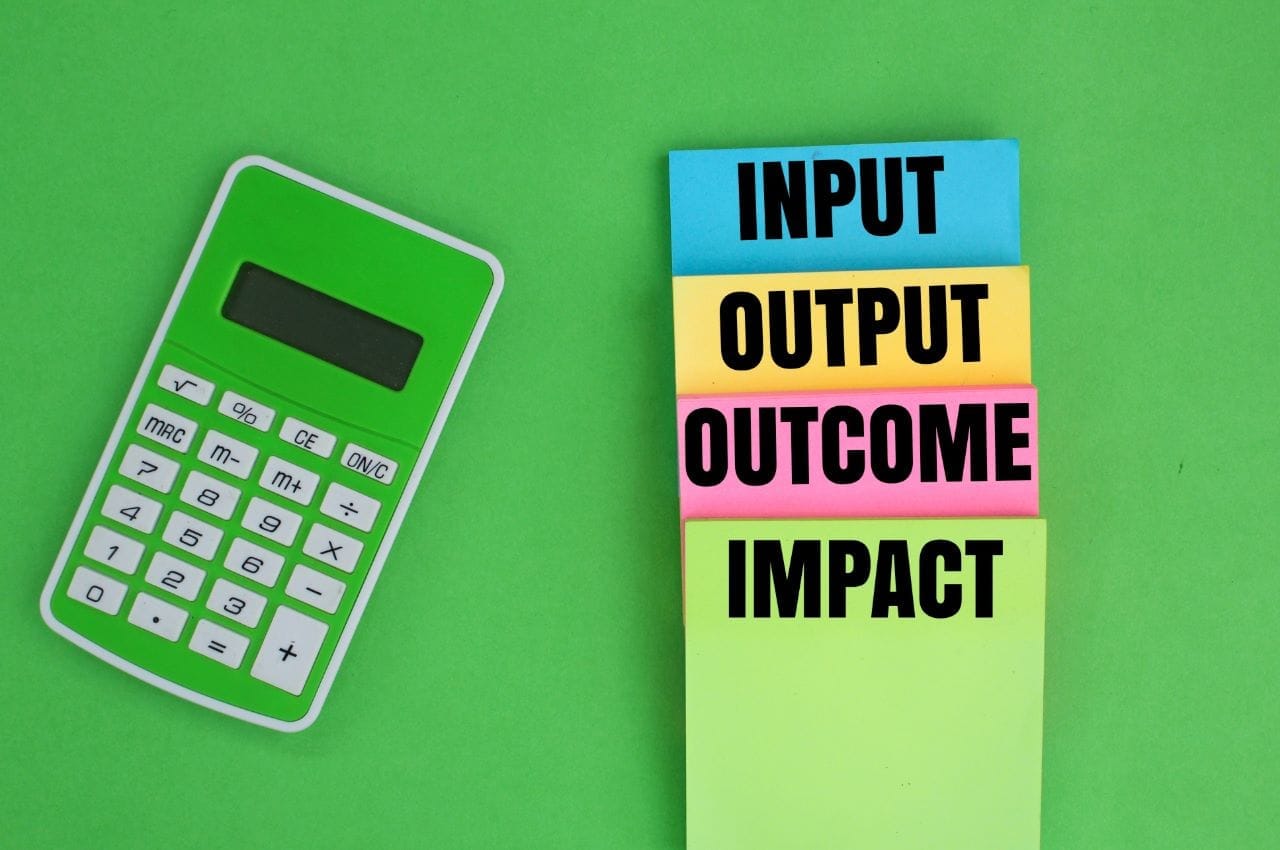Different Types of Fundraising Events
Fundraising events are a crucial part of any student club or nonprofit organization's strategy to raise funds and support their cause. In this comprehensive guide, we will explore a few different types of fundraising events, some strategies for planning a fundraising event, and frequently asked questions about raising funds for a cause. You'll be equipped to plan and execute your own successful fundraising event.
Here at Bold.org, we are committed to helping students eliminate student debt. Check out our Scholarship Blog for more information and learn how to apply for scholarships today!

Fundraising Strategies
Fundraising is not just about collecting money; it is about creating opportunities for individuals and communities to come together and support a cause they believe in. These events serve as a platform for building relationships, raising awareness, and fostering a sense of community. By engaging donors and supporters, fundraising events create a positive ripple effect that extends beyond the immediate financial impact for your organization.
Through fundraising events, nonprofits can establish a sustainable source of income that allows them to continue their work and make a lasting difference. These events raise money to provide the necessary resources to implement programs, support research, and address pressing social issues. Without effective fundraising, many nonprofits would struggle to survive and fulfill their missions.
Key Elements of Successful Fundraising
There are a few common elements among successful fundraising events:
- Clear objectives: Define specific goals and outcomes you want to achieve through your event. Whether it is raising a certain amount of money, increasing awareness, or expanding your donor base, having clear objectives helps guide your planning and measure your success.
- Target audience: Identify the individuals or groups who are most likely to support your cause and tailor your event to their interests. Understanding your target audience allows you to create an experience that resonates with them, increasing the likelihood of their participation and support.
- Engaging storytelling: Craft a compelling narrative that connects attendees emotionally to your mission and the impact they can make. Sharing stories of individuals who have benefited from your organization's work can create a powerful connection and inspire attendees to take action and raise money.
- Effective planning: Thoroughly plan every aspect of your event, including event logistics, marketing, and volunteer management. A well-executed event requires meticulous planning and coordination to ensure a smooth experience for attendees and maximize fundraising opportunities.
- Engagement opportunities: Provide various ways for attendees to get involved, whether through ticket sales, donations, volunteering, or spreading awareness. Offering multiple engagement opportunities allows individuals to contribute in a way that aligns with their skills and interests.
- Measurable outcomes: Set benchmarks to evaluate the success of your event and inform future strategies. By measuring outcomes such as funds raised, attendee satisfaction, and impact achieved, you can assess the effectiveness of your event and make data-driven decisions for future fundraising efforts.

Setting Goals and Budgeting
It is essential to define your fundraising goals and establish a realistic budget before diving into event planning. Consider what methods you will use to raise money. Will you collect donations in advance of the fundraising event? Will you solicit donations in person or run a campaign collecting online donations? Will you host a series of other fundraising events? Take the time to clearly identify how much funding you aim to raise and allocate resources towards your fundraising event accordingly.
Some expenses to consider for any fundraising event idea include venue costs, catering, and promotional materials. It is also important to consider the timeline for your fundraising event. Determine the ideal date and duration for your event, taking into account any significant holidays or competing events that may impact attendance. With a carefully planned timeline, you can ensure that your event receives maximum exposure and participation.
Choosing the Right Type of Event
When selecting the most appropriate fundraising event, it is crucial to consider your target audience, cause, and available resources. Choose an event that aligns with your organization's mission and resonates with your audience to ensure maximum participation and engagement. A few fundraising event ideas to consider include charity auctions, gala dinners, walkathons, or online crowdfunding campaigns. Each event type has its own unique benefits and considerations, so it is important to choose the one that best suits your organization's goals and capabilities.
Additionally, consider the logistics and practicalities of your chosen event. Determine the venue requirements, equipment needed, and any necessary permits or licenses. By carefully planning these details, you can ensure a smooth and successful event execution.
Traditional Fundraising Events
Charity Auctions
Charity auctions are a tried and true fundraising event idea. They offer attendees the excitement of bidding on exclusive items or experiences while raising money to support a good cause. From luxurious vacations to unique memorabilia, auctions can be tailored to your target audience according to your organization's theme. You could even ask for donations from local businesses, local artists, or local restaurants.
Charity auctions can be executed as an online fundraising event or an in-person experience. You could also run the event as a silent auction, adding to the intrigue of who will receive which prize. You could host this as a more formal event or as a casual way to raise money and to raise awareness. This charity event can be combined with a raffle, for which you could sell tickets in advance of the event. This is a terrific fundraising idea because of its flexibility and customizability according to your organization's needs and goals.

Benefit Concerts
Music has the power to bring people together, making benefit concerts a popular choice for nonprofit organizations. By partnering with local artists, musicians, or bands, you can organize a memorable evening of live music while raising funds. You can ensure that the concert aligns with your cause by theming the event or featuring musicians who publicly support your mission. This fundraising idea is a great way to raise awareness for your cause because the artists and musicians you partner with will have platforms and followings of their own to which they can amplify your organization's message.
Benefit concerts can also be themed events, adding an extra layer of excitement. For instance, if the concert falls around a holiday like Halloween, all the performers could be dressed in costumes. Or, the event could be themed as a tribute to a specific era, with performers and audience members alike dressing according to the fashion of the era. These themed benefit concerts create a unique and immersive experience for the audience, ensuring a memorable and fun event.
Event sponsors like local businesses and restaurants could supply food and equipment for the concert. For this fundraising idea, you could sell tickets in advance of the event in order to raise funds. You could sell tickets on a tiered basis, with additional perks like free merchandise or a VIP experience with additional money spent in order to raise even more money.
You could also recruit volunteers to collect donations from audience members in advance of the event and on the day of the event. You could even establish an online fundraising page showing how close your organization is to its goal through the benefit concert. Though this type of event requires a large amount of planning, you have the potential to make significant revenue through a benefit concert.

Casino Night
A casino night is another fun event idea that can be scaled according to your organization's size and fundraising goals. You could invite the local community to participate in an exciting night of classic games like blackjack and poker, all for a good cause. Community members could enjoy refreshments courtesy of a local restaurant and live performances by local bands as they play games and raise money for a cause.
You could easily combine this fundraising event with another type of fundraiser. For example, you could sell raffle tickets or hold a silent auction at the casino night. This is also the perfect fundraising event to turn into a series. People will be excited to come to the next event after the joy and competitive spirit of the first casino night.

Sponsored Runs/Walks
Sponsored runs or walks combine the benefits of physical activity and community engagement. Participants gather sponsorships from friends, family, and colleagues who pledge to donate a certain amount for every mile completed. These events not only raise funds but also promote a healthy lifestyle and create a sense of camaraderie among participants.
A sponsored run or walkathon is one of the best family-friendly fundraising events because family members of all ages can participate in the experience. The fundraising campaign begins well in advance of the sporting event itself, as participants collect donations in person or through an online donation page. Participants pay a fee to join in the race, and their peer-to-peer fundraising helps to spread awareness of the cause while raising more money.
The intensity of this sporting event could easily be modified according to your target audience. For example, you could host an obstacle course event in an inflatable obstacle course structure for younger participants to join in. Or, if your audience is high school athletes, you could host a mud run, cross-country race, or ultra-challenging obstacle course event. Examples of other sports-based fundraising events include a golf tournament or a basketball tournament.

Innovative Fundraising Events
Virtual Fundraisers
In recent years, virtual fundraisers have gained popularity due to their accessibility and convenience. These events allow supporters from around the world to participate without geographical limitations while directing participants to the online donation form. Whether it's a virtual gala, an online auction, or a live-streamed performance, virtual fundraisers offer a unique way to engage donors and raise funds. Online fundraisers can be accessed from anywhere with an internet connection, allowing supporters from different time zones and even different countries to participate.
Virtual fundraisers often offer unique interactive elements that can enhance the donor experience. A virtual gala may include live chat features, allowing attendees to connect with each other and with the organizers. Attendees can buy tiered tickets, granting them access to additional online experiences like an exclusive Q&A with a star. Online silent auctions can be integrated into these events with real-time bidding systems, creating the opportunity to raise even more money.
Peer-to-Peer Fundraising
Another innovative approach to fundraising is peer-to-peer fundraising. This strategy harnesses the power of personal networks, turning individual supporters into advocates for your cause. Participants create their own fundraising pages and share them with their friends, family, and social networks.
Peer-to-peer fundraising taps into the social networks of supporters, reaching a wider audience and encouraging a sense of collective impact. When someone sees their friends or family members actively supporting a cause, they are more likely to get involved themselves. This ripple effect can lead to exponential growth in both the number of donors and the amount of funds raised.
Furthermore, peer-to-peer fundraising allows supporters to personalize their fundraising efforts. They can share their personal stories and motivations for supporting your cause, making their campaigns more compelling and relatable while soliciting donations. This personal touch often resonates with potential donors, increasing the likelihood of their support.

Crowdfunding Campaigns
Crowdfunding has revolutionized the way individuals and organizations raise money. Platforms like Kickstarter and GoFundMe have made it easier than ever to showcase projects and initiatives, allowing supporters to contribute directly.
One of the key advantages of crowdfunding campaigns is their ability to leverage the reach of social media to raise money. By sharing compelling stories and engaging content on platforms like Facebook, Twitter, TikTok, and Instagram, nonprofits can tap into the vast networks of their supporters. This can lead to a viral effect, with supporters sharing the campaign with their own networks, expanding the reach even further.
Crowdfunding campaigns also provide an opportunity for nonprofits to showcase their impact and connect with donors on a deeper level. By providing regular updates on the progress of the campaign and sharing stories of how the funds will be used, organizations can build trust and transparency with their supporters. This can lead to long-term relationships and continued support beyond the initial campaign, so the next fundraising event has an even greater impact.
Are fundraisers tax deductible? Check out our blog to learn more!
Marketing Your Fundraising Event
An effective marketing strategy is crucial for the success of your fundraising event. Utilize various channels such as social media, email newsletters, and local press to create awareness and generate enthusiasm. Develop a comprehensive marketing plan that includes pre-event promotions, ongoing updates, and post-event follow-ups. By leveraging these channels, you can reach a wider audience and attract potential attendees and donors while updating longstanding supporters on the progress of your fundraising efforts.
When marketing your event, be sure to highlight the impact attendees can make by supporting your cause. Share compelling stories and testimonials that showcase the positive change your organization is making in the community. Additionally, consider partnering with local businesses or influencers who can help promote your event and expand your reach.
Consider offering incentives or rewards to encourage early registration or additional donations. This can create a sense of urgency and excitement among potential attendees, increasing their likelihood of participating in your event while raising money.

Measuring the Success of Your Fundraising Event
Evaluating the success of your fundraising event is crucial to understanding its impact and making informed decisions for future events. One of the primary indicators of a successful fundraising event is its financial performance. It is essential to track your fundraising progress against your budget and your goals to assess your event's financial success. This involves measuring the total funds raised, the average donation amount, and the return on investment (ROI).
By analyzing these financial metrics, you can gain valuable insights into the effectiveness of your fundraising strategies. For example, if you exceeded your fundraising goal and achieved a high ROI, it indicates that your event resonated well with donors and generated significant support for your cause. On the other hand, if you fell short of your goal or experienced a low ROI, it may be an opportunity to reevaluate your approach and try different fundraising event ideas in the future.
When evaluating fundraising success, it is crucial to consider the long-term impact of your fundraising event. While immediate financial success is important, sustainable growth and ongoing support from donors are equally vital. Therefore, analyzing trends over time and identifying patterns in your donors' behavior can help you develop strategies that foster lasting engagement and continued financial success.

Assessing Engagement and Participation
Evaluating the level of engagement and participation in your fundraising event provides a more comprehensive understanding of its overall impact. Engaged participants are more likely to become long-term supporters and advocates for your cause.
It is important to gather feedback from event attendees and volunteers to assess engagement and participation. This assessment can be done through surveys, interviews, or focus groups. By collecting their opinions, suggestions, and experiences, you can gain valuable insights into the effectiveness of your event and identify areas for improvement.
In addition to attendee feedback, measuring social media engagement can provide valuable insights into the reach and impact of your event. Analyzing metrics such as likes, shares, comments, and mentions can help you gauge the level of community involvement and the event's resonance on various platforms. This is especially important if your campaign involves an online fundraising event.
Collecting testimonials from attendees, volunteers, and beneficiaries can also be a powerful way to assess the impact of your event. These testimonials can highlight personal stories, experiences, and the positive change that your organization has brought about. Sharing these testimonials with your supporters and stakeholders can further strengthen their connection to your cause, inspire continued engagement, and even motivate additional donations.

Planning for Future Fundraising Events
Once you have evaluated your fundraising event, it is crucial to use the insights gained to inform future fundraising strategies. Identifying areas for improvement for your next fundraising event can help ensure continuous growth and impact for your organization.
Consider the feedback received from attendees and volunteers. Are there any recurring suggestions or areas of improvement that stand out? Use this feedback to refine your event planning process and address any shortcomings that may have been identified.
Furthermore, analyze the data collected from your event's financial performance. Are there any trends or patterns that can inform your future fundraising strategies? For example, if you notice a high average donation amount from a particular demographic, you can tailor your messaging and outreach efforts to target similar individuals in future events.
Additionally, consider the overall impact and resonance of your event with the community. Did your event generate significant buzz on social media? Were there any partnerships or collaborations that contributed to its success? By identifying these factors, you can replicate successful strategies and forge new partnerships that can enhance the impact of your future fundraising events.
As you embark on your journey of planning and executing a fundraising event, remember that success lies in your organization's ability to inspire and engage supporters. By offering a diverse range of events, targeting the right audience, and implementing effective strategies, you can create a powerful impact and drive positive change in your community.

Frequently Asked Questions About Different Types of Fundraising Events
What are some fundraising event ideas that make big money?
The profitability of any fundraising event depends upon your event planning and promotion of the event. Some fundraising events with the biggest potential to raise large amounts of money include charity auctions, crowdfunding campaigns, and sporting events. These fundraising event ideas typically have the lowest costs to launch, so you can raise the most money while keeping your budget low.
What are some fundraising ideas for schools?
There are a plethora of opportunities to raise money for school clubs or student groups. It is easiest to select a fundraising event that thematically matches the cause you are fundraising for. For instance, you could sell tickets to to a talent show involving student performers and other local artists to raise money for a theater club. Or, you could host a golf tournament to raise money for the school golf team.
How do I ask for donations?
Asking for donations can seem like a challenging task, but it is greatly simplified with some preparatory work and a positive attitude. Check out our comprehensive guide to asking for donations for more information on how to go about doing so. Setting up an online donation page is an easy alternative to asking for donations in person.
Here at Bold.org, we are committed to helping students eliminate student debt. Check out our blog for more information and learn how to apply for scholarships today!

About Bold.org Donor Team
At Bold.org, our Donor Team is driven by a shared commitment to helping individuals and organizations make a lasting difference through scholarships and charitable giving. We are passionate about supporting donors throughout their philanthropic journey, ensuring that their contributions create lasting, positive change.
Our commitment goes beyond guiding donors through the scholarship process—we also craft educational content that shares our expertise and inspires impactful giving. By creating donor-focused resources, we not only support donors directly but also provide valuable insights to help them navigate their mission of giving with confidence.
With extensive experience in fundraising, scholarship creation, and donor relations, we specialize in bringing your vision to life. Whether it’s crafting a scholarship that reflects your values or ensuring your generosity opens doors for students, our team is here to help you achieve your philanthropic goals.
We believe philanthropy should be accessible, transformative, and deeply rewarding. Every piece of content we write, every scholarship we help build, and every relationship we nurture is driven by our shared goal: to empower donors and change lives through education. Together, we’re shaping a brighter future, one contribution at a time.